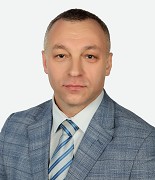Authors
Ihor Hurak1; 1 Vasyl Stefanyk Precarpathian National University, UkraineDiscussion
The first Chancellor of the German Empire, Otto von Bismarck, served as the Prussian ambassador to the Russian Empire from 1859 to 1861. He was fluent in Russian, maintained close ties with the imperial court, and had a strong relationship with the then Minister of Foreign Affairs of Russia, Alexander Gorchakov. In contemporary Russia, it was said that Bismarck understood the Russian way of thinking. Interestingly, one of Bismarck’s most famous statements asserts that agreements with Russia are not worth the paper they are written on.
At the same time, a number of renowned researchers and experts – such as Anne Applebaum, Mark Galeotti, and Timothy Snyder – have analyzed the foreign policy actions of modern Russia and concluded that the Kremlin is increasingly gravitating towards methods characteristic of the 19th century.
Given the above, this article attempts to examine the approaches of Russia’s political elites, led by Vladimir Putin, to conducting foreign policy in the first quarter of the 21st century, with a particular focus on its Ukrainian dimension. The study analyzes official Russian state documents, Putin’s speeches since his rise to power, and correlates them with concrete practical actions. For an extended period, Vladimir Putin and his team sought to establish Russia’s reputation as a tough but, at the same time, reliable and predictable international actor. The Kremlin tried to convince leading Western states that despite its "civilizational" peculiarities, Russia was no less committed to the norms of international law than the countries of the so-called collective West.
The reluctance of leading Western politicians to initially call things by their proper names, followed by their inability to abandon a modernized appeasement policy towards Russia – combined with exceptionally favorable conditions in energy markets – created highly comfortable circumstances for the Putin regime. This enabled the Kremlin to tighten control over domestic affairs and expand its geopolitical ambitions. The West failed to adequately assess the growing Russian threat after the events in Georgia in August 2008. The situation remained largely unchanged even after Russia launched its aggression against Ukraine in February 2014. The Kremlin leadership managed to lull the West into complacency and, with its tacit approval – and at times even systematic support – prepared for a full-scale war against Ukraine.
The results of this analysis provide clear evidence of the highly manipulative nature of the Putin regime’s foreign policy towards Ukraine. For a long time, the Kremlin employed various methods to establish Russia as a so-called "normal" international actor. However, Russia’s actions in Ukraine after February 24, 2022, have thoroughly debunked this myth and unequivocally exposed the criminal essence of its international activities. 

